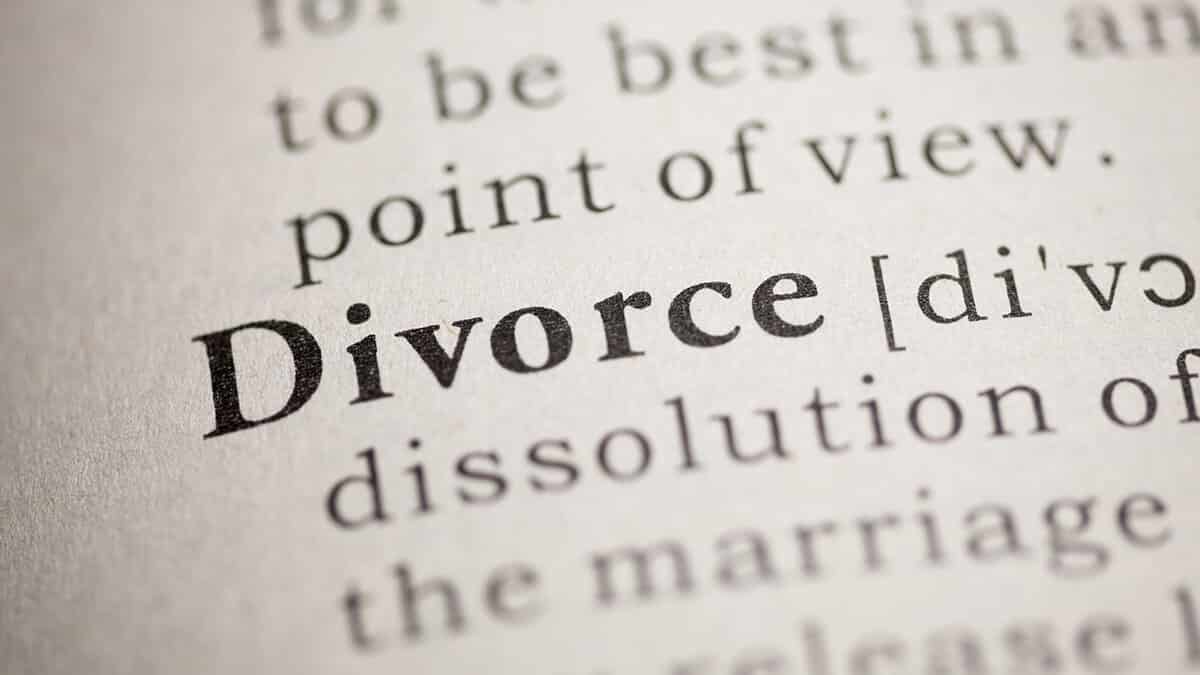In this guide
Separation and divorce are on the rise in older couples, often after decades together. If you are in an unhappy or difficult relationship and contemplating a split, you may be wondering what will happen to your Age Pension.
Not only that, but you may be unsure about the best way to notify Centrelink of your change in circumstances.
The Age Pension assets test and income test is applied to a couple’s combined resources. It assumes that a couple can and will pool their resources to ensure all their expenses are met. Arguably, expenses for a couple are less per person than expenses for a single person. That’s why the maximum rate of Age Pension for a single person is currently $1,064 per fortnight for homeowners, while a home-owning couple can be paid a maximum of $802 each.
To own or not to own?
The assets test threshold – the point at which your pension payments start to reduce – is different for homeowners and non-homeowners. This is because your home is an exempt asset, that is, it’s not included in the assets test. Non-homeowners don’t have an exempt asset, so their assets test threshold is higher to compensate for their potentially higher housing costs and lack of home equity to draw on in retirement. For a non-homeowner, this means the cut-off limit – the point at which you are not entitled to a part-pension – is also higher, as you can see in the table below:
| Threshold | Cut-off limit | ||
|---|---|---|---|
| Single | Homeowner | $280,000 | $634,750 |
| Non-Homeowner | $504,500 | $859,250 | |
| Couple | Homeowner | $419,000 | $954,000 |
| Non-Homeowner | $643,500 | $1,178,500 |
So what happens when you separate, sell and split the money?
Let’s look at an example.
When only one person moves out
Sometimes, there is no plan and one person leaves. Be aware that if you have ownership of your former home, Centrelink will begin to assess your share of the home as an asset. This is because it is only an exempt asset when it is your principal residence.
For the person that remains in the home, you are still a homeowner for Centrelink purposes and the home will remain an exempt asset.
For the person who has left the home, your share becomes an asset from the date you left. If there is a loan secured against the property, the loan balance will reduce the assessable asset value. If your payments are reduced because of this asset, but you are unable to use the asset to generate income, you may be able to ask Centrelink to disregard the home from the assets test, by applying under the ‘assets test hardship provisions’. You will need to discuss your case with a Centrelink officer.
What to tell Centrelink
You will need to tell Centrelink you have separated as soon as possible. You can only be paid a higher rate of payment from the date you advise them – they won’t backpay you if you haven’t told them.
You may also wish to amend ‘permissions’. If your partner has permission to enquire on your record and you no longer wish that to occur, you can tell Centrelink straight away and they will remove this permission immediately.

Free eBook
Retirement planning for beginners
Our easy-to-follow guide walks you through the fundamentals, giving you the confidence to start your own retirement plans.
"*" indicates required fields
You will also need to update your financial details with Centrelink and provide documents to show the new information. You need to show the paper trail. For example:
- The settlement statement showing details of the sale of your property and how the funds were dispersed
- Purchase documents if you have purchased a new home (eg contract of sale)
- A copy of your lease if you are now renting
- Bank statements showing the sale proceeds deposited and the resulting balance
- If you then moved the funds, you will need to provide the corresponding bank statements to show where the funds are now, the deposit and the resulting balance
- Any court orders or property settlement agreement
- Details of your former home if you still have ownership (eg rates notice, loan documents).
You can advise a separation, a change of address and a change in your assets online. However, sometimes an online update doesn’t affect your record straight away; instead, it requires a Centrelink officer to check the information and action the update. This can take some time. If your rate of payment will be reduced and the update is not actioned straight away you could end up with a debt. To avoid this occurring, you can call Centrelink and ask them to process your changes right away.
We’ve sold the house but I haven’t found a new one yet
If you have sold your principal home, and you intend using the funds to purchase another home to live in, you can have the proceeds that you intend to use exempted from the assets test for a period of up to 24 months, and up to 36 months in special circumstances. You can use this time to look for a suitable alternative, knowing that your pension won’t be affected too much. The money will still be subject to deeming, but it will only be deemed at the lower rate of 0.25% for the time it is an exempt asset.
What if we haven’t sold or moved yet?
It is possible for Centrelink to accept that you have separated and pay you as a single person even if you are still living in the same house.
For example, you may have divided up separate areas of the house, taken steps to separate all your finances and notified family and friends you are no longer a couple. This is a complex area of the Centrelink rules, and there are very strict criteria to decide if you are still a couple or not.
If you believe you are separated but still sharing the same house, you can complete an additional form to have your relationship assessed. The form contains all manner of questions about your relationship to determine how it is different to that of a partnered couple. You will also need to provide details of two people who can verify your situation. You can find further information including a link to the form here.

Free eBook
Beginners guide to the Age Pension
Learn how the Age Pension is assessed, and how to apply.
"*" indicates required fields
Important message about your safety
Please note: if you think you may be subjected to domestic violence, there is help available.
Domestic violence can be behaviour that is violent, threatening, controlling or intended to make you feel scared and unsafe. Centrelink has social work services and special processes for people in these situations.
You can ask to speak to a Centrelink social worker to discuss your circumstances by calling your usual payment line or asking in person at a service centre. They will not expect you to do anything that puts you at risk. To access 24/7 support and counselling, call 1800RESPECT on 1800737732. If you are in immediate danger, call 000.

Leave a Reply
You must be logged in to post a comment.